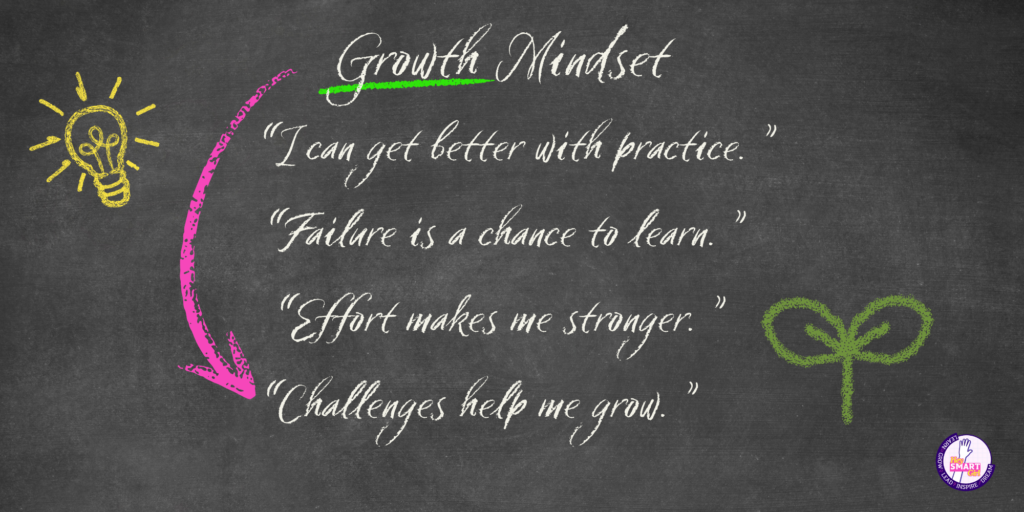The Most Important Lesson You Can Teach Your Teen
Have you ever heard your teen say, “I’m just bad at math,” or “I’ll never be good at sports”? These kinds of statements can feel disheartening to parents because they reflect a fixed mindset—the belief that abilities and talents are innate and unchangeable. It also means that they will stop trying, when they believe that they will never be good at something they stop putting in the effort and give up. But here’s the good news: this way of thinking can be transformed.
What if your teen could approach every challenge with curiosity, resilience, and confidence instead of fear or self-doubt? What if, instead of saying, “I can’t do this,” they started saying, “I can’t do this yet”? This powerful shift in thinking is called a growth mindset, and it’s one of the most valuable tools you can help your teen develop.
According to leading mindset researcher David Yeager, adolescence is a critical time for mindset development. Teens are especially sensitive to social messages about their abilities, and how they interpret challenges or setbacks can shape the rest of their lives.
In this post, we’ll explore what a growth mindset is, how it contrasts with a fixed mindset, and why fostering this mindset can have a profound impact on your teen’s confidence, resilience, and success.
What Is a Growth Mindset?
A growth mindset is the belief that abilities, intelligence, and talents can be developed through effort, learning, and persistence. This concept, introduced by psychologist Carol Dweck, teaches us that our potential is not fixed—it grows as we embrace challenges and learn from setbacks.
In contrast, a fixed mindset assumes that abilities are innate and unchangeable. Someone with a fixed mindset might say, “I’m just not a math person,” and avoid putting effort into improving. A person with a growth mindset, however, would say, “I may not be good at math yet, but I can get better if I work hard and seek help.”
Here’s how the two mindsets compare:
Fixed Mindset | Growth Mindset |
| “I’m not good at this.” | “I can get better with practice.” |
| “Failure is proof I’m not talented.” | “Failure is a chance to learn.” |
| “Why bother? I’m just not smart.” | “Effort makes me stronger.” |
| “I’ll stick to what I’m good at.” | “Challenges help me grow.” |
Why Is a Growth Mindset So Important for Teens?
1. Adolescence Is a Critical Time for Development
David Yeager’s research highlights that teens are especially sensitive to social messages about their abilities. At this stage of life, they’re forming their identity and figuring out how they fit into the world.
- Teens with a fixed mindset are more likely to avoid challenges, fear failure, and give up easily when things get hard.
- Conversely, teens with a growth mindset are more likely to embrace challenges, persist through difficulties, and see setbacks as part of the learning process.
Even small mindset shifts during this critical time can have long-lasting effects. In one of Yeager’s studies, a 90-minute growth mindset intervention improved academic performance in high school students, particularly those who were struggling.
2. Talent Isn’t Everything
NFL Hall of Famer Steve Young is a living example of how a growth mindset leads to success. Despite being an incredibly talented quarterback, he credits his achievements to his ability to adapt, persevere, and grow through challenges. Young often emphasizes that:
- Success often comes from struggle.
- Talent alone isn’t enough—what matters is your ability to keep learning and improving.
This is a crucial message for teens to hear. Too often, they think success comes easily to others and feel defeated when they encounter difficulties. Teaching them that struggle is a normal part of growth helps reframe challenges as opportunities to improve.
3. Growth Mindset Builds Confidence and Resilience
Teens face challenges every day, from navigating schoolwork and extracurriculars to dealing with social pressures. A growth mindset helps them:
- Bounce back from setbacks: They learn to see failure as a stepping stone, not a dead end.
- Develop confidence: Knowing they can improve through effort gives them the courage to tackle tough tasks.
- Persist through challenges: Instead of giving up when something feels hard, they’re motivated to keep trying.
When your teen believes they can grow and improve, their potential becomes limitless.
The Science Behind Growth Mindset
Growth mindset isn’t just an idea—it’s backed by science.
- David Yeager’s Studies: Yeager’s research shows that teaching teens about brain plasticity—the idea that the brain grows stronger with effort—can dramatically improve their motivation and performance.
- Brain Plasticity: When teens understand that their brain forms new connections every time they learn or practice a skill, they’re more likely to stick with challenging tasks.
The message is clear: effort leads to growth, and growth leads to success.
The Shift: Be a “Learn-It-All,” Not a “Know-It-All”
In the words of Microsoft CEO Satya Nadella, the key to success is to stop trying to be a “know-it-all” and start being a “learn-it-all.” This phrase perfectly captures the essence of a growth mindset.
- A know-it-all avoids challenges to protect their image of being smart or talented.
- A learn-it-all embraces challenges as opportunities to grow and improve.
Ask your teen: “Would you rather pretend you know everything, or actually grow into someone who can achieve anything?”
How Teens Benefit From a Growth Mindset
When teens adopt a growth mindset, they gain tools that will help them succeed in all areas of life:
- Academics: They approach difficult subjects with curiosity and determination.
- Sports: They work harder in practice and focus on improving, not just winning.
- Social Challenges: They navigate conflicts and rejection with resilience.
- Future Careers: They learn to adapt, seek feedback, and grow in any role they take on.
Conclusion: Empowering Your Teen to Grow
Helping your teen develop a growth mindset is one of the greatest gifts you can give them. By teaching them to embrace challenges, persist through setbacks, and focus on effort over results, you’re setting them up for a lifetime of confidence and resilience.
And remember, even small activities matter. Simply reframing the way you talk about effort and failure can make a big difference. As David Yeager’s research shows, small mindset shifts during adolescence can lead to long-term success.
Want to know how to help your teen develop a growth mindset? Stay tuned for our next post, where we’ll share practical tips and activities for fostering this powerful way of thinking.
What’s your favorite growth mindset quote? How do you encourage your teen to embrace challenges? Share your thoughts in the comments below—we’d love to hear from you!







